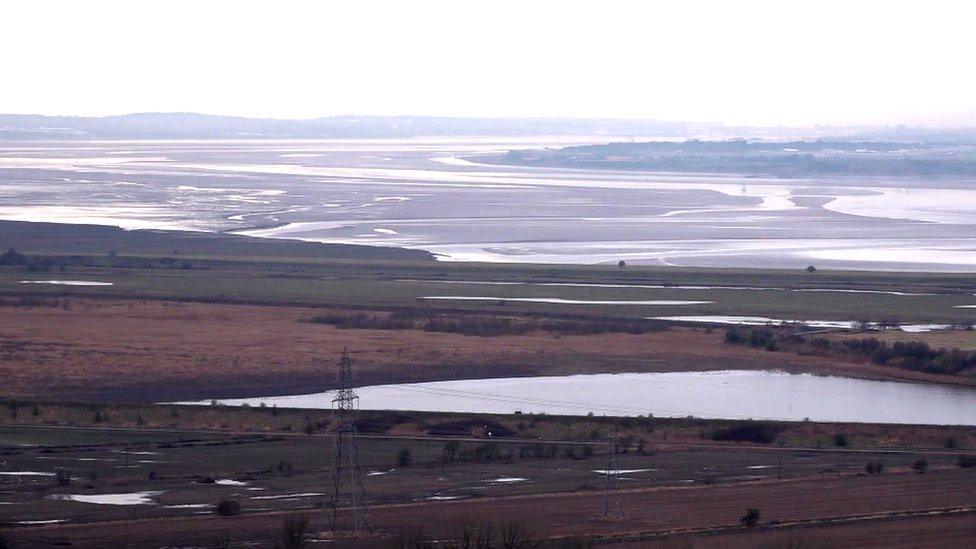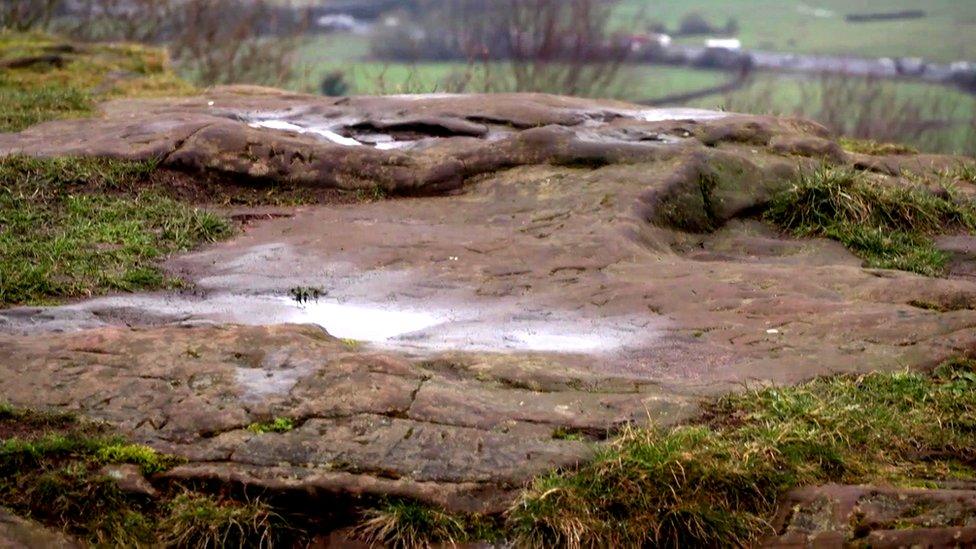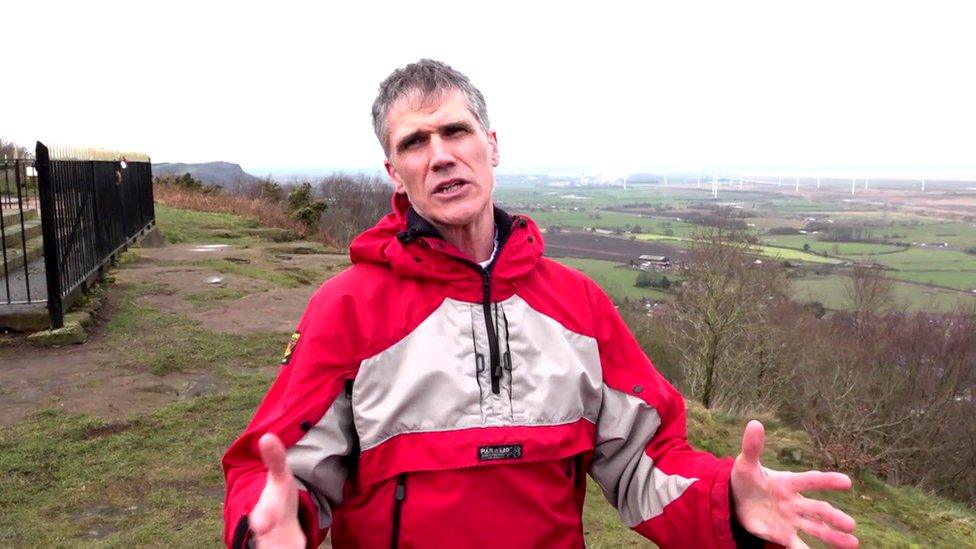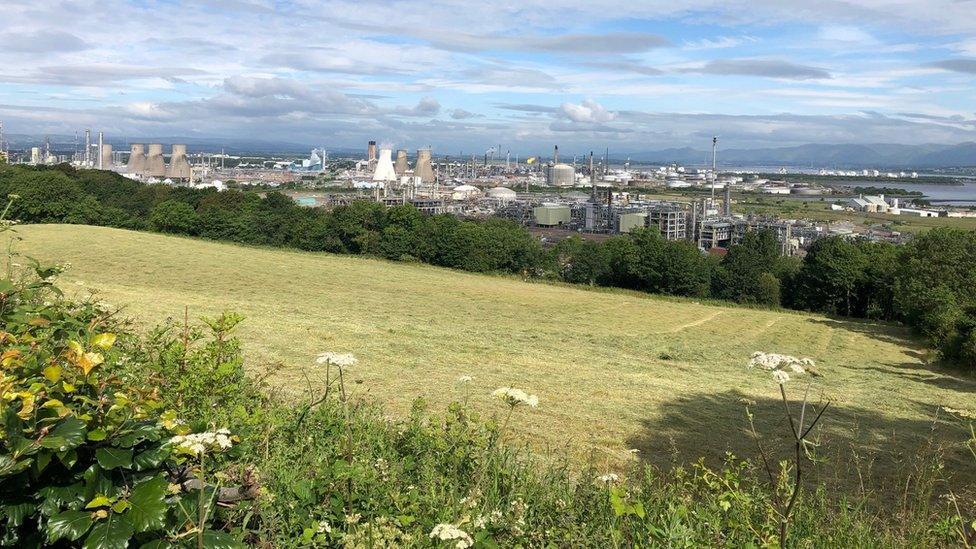Green light for Cheshire geothermal energy research
- Published

Cheshire is the only English site for the geonergy observstories
The go-ahead has been given to sink 50 boreholes as part of research into harnessing underground heat and steam power.
Cheshire West and Chester Council (CWaC) approved a British Geological Survey (BGS) application for a geoenergy observatory at Ince Marshes.
The carbon-friendly power research, external was commissioned by the Natural Environment Research Council (NERC).
Two other geoenergy observatories will be sited in Wales and Scotland.
The boreholes will be drilled down to 3,900ft (1,200m) on marshes south of the Mersey estuary, enabling scientists to gain a clear picture of of the underground environment.
About £2.5m worth of scientific sensors will collect data on the chemical, physical and biological properties of the rocks over a 15-year period.

What is geothermal energy?

The Cheshire boreholes will be across an area of seven square miles
Hot water and steam from deep underground can be used to drive turbines
It can be also used to heat buildings directly
It is seen as a potential form renewable energy with no carbon footprint.
Source BBC Bitesize/British Geological Survey

Prof Mike Stephenson, chief scientist at the BGS, said: "Second by second, minute by minute, day by day, we'll be measuring the pulse of the Earth in a way that the scientific community simply hasn't been able to do until now.
"What we learn in Cheshire should provide a breakthrough in our understanding of how the whole underground system works."
As part of the same project, 61 boreholes will test the temperatures of the water in water-bearing rock under Cardiff.
And in Glasgow, 12 boreholes will measure how warm water moves around abandoned mine workings.

Prof Mike Stephenson said BGS would be "taking the earth's pulse"
- Published4 July 2019
